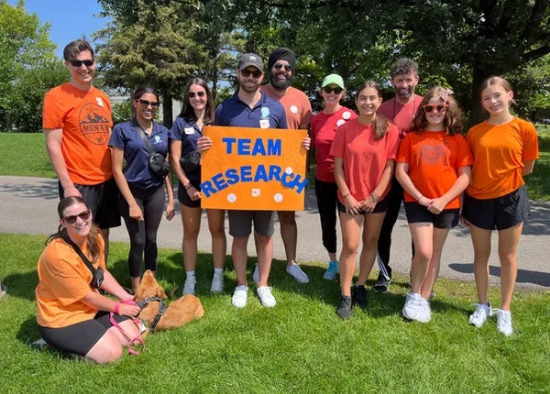Our Research
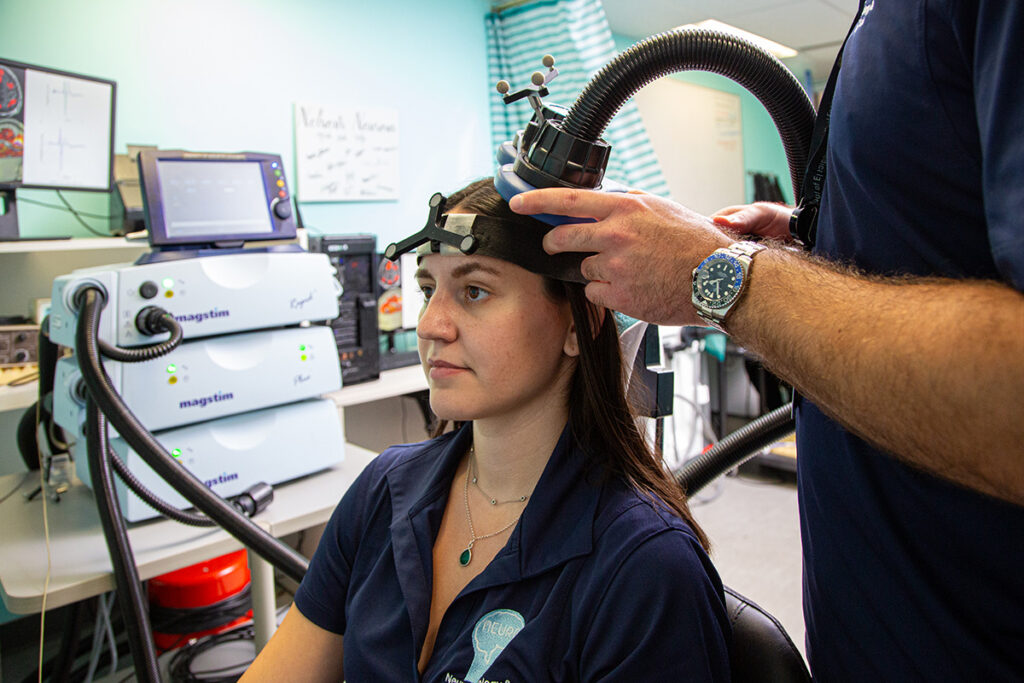
Transcranial Magnetic Stimulation (TMS)
Transcranial magnetic stimulation (TMS) is a painless way to stimulate brain cells using magnetic pulses.
When TMS is applied to a part of the brain called the motor cortex, it activates nerves that control muscles. This creates a small muscle response called a motor-evoked potential (MEP). The MEP helps us measure how active these nerves are.
We are using TMS to study different brain circuits and create maps of the motor cortex. By analyzing changes in these maps, we hope to learn more about how this part of the brain is organized.
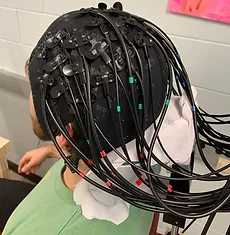
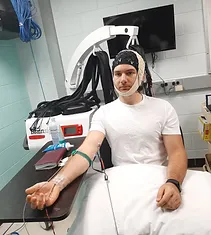
Functional Near-Infrared Spectroscopy (fNIRS)
Functional near-infrared spectroscopy (fNIRS) is a non-invasive technique that uses near-infrared light (700-900 nm) to measure changes in brain activity.
The light passes through multiple channels into brain tissues and is absorbed by hemoglobin molecules in veins and arteries of the brain. Oxygenated blood flows to active areas of the brain, and the amount of light detected shows how much activity is happening.
Common applications include monitoring task-related changes in cerebral blood flow and investigating abnormalities associated with brain disorders.
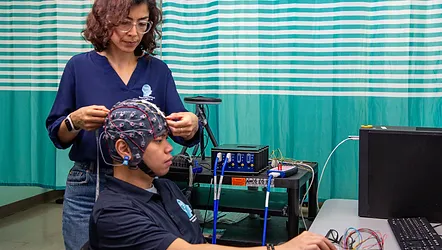
Electroencephalography Brain Machine Interface (EEG-BMI)
Movement related cortical potential’s (MRCP) are slow brain potentials that are generated approximately two seconds prior to movement and corresponds to movement intention. These potentials can be detected in real time non-invasively with an electroencephalography brain machine interface (EEG-BMI). Through the detection of MRCP’s the BMI can trigger peripheral nerve stimulation that temporally coincides with the maximum response in the motor cortex. These pairings have been shown to induce associativity plasticity in the cortical representation of the stimulated muscle causing improved motor function.
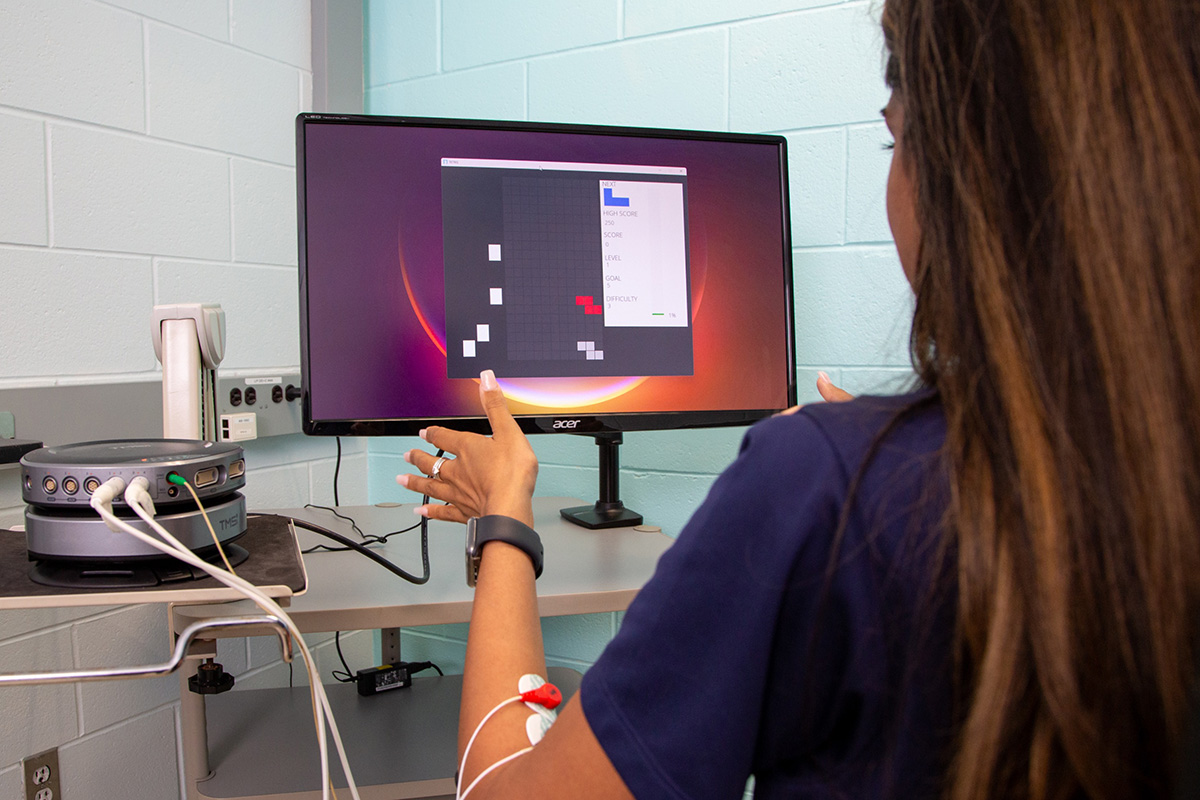
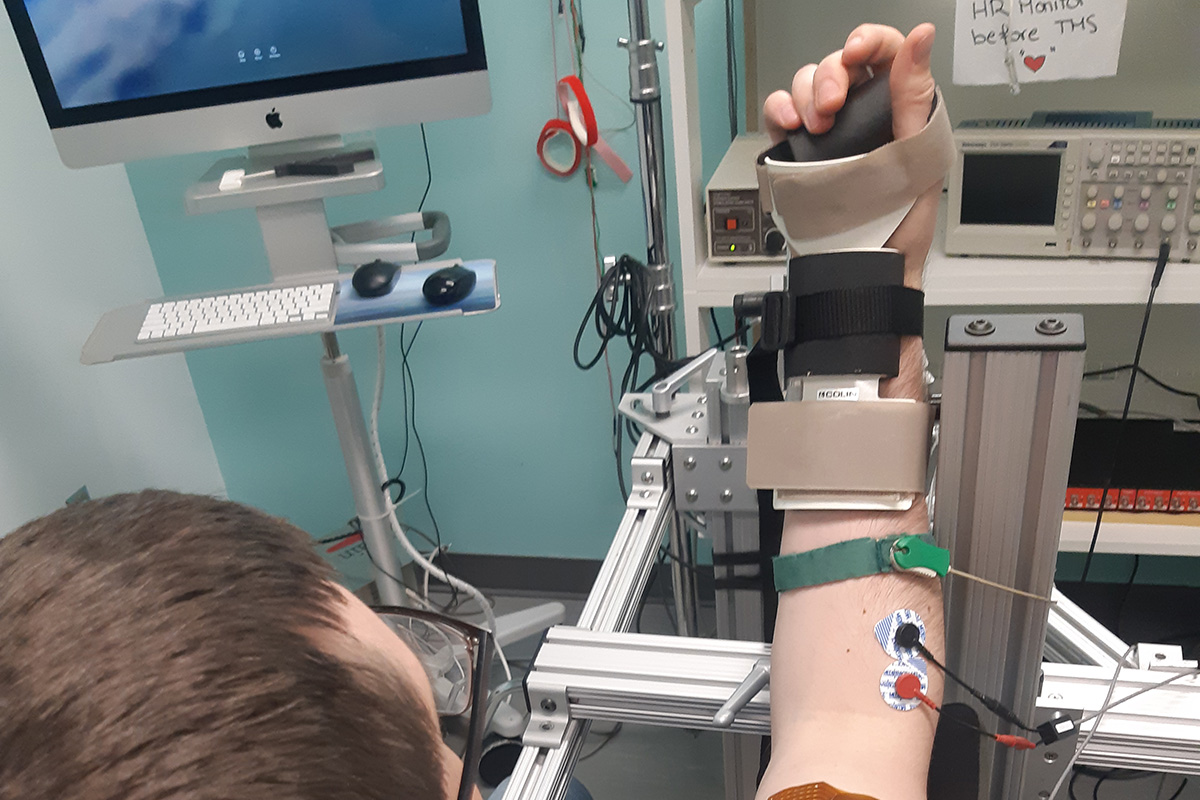
High-Density Electromyography (HD-EMG)
HD-EMG is a powerful, non-invasive technique used to measure muscle activity. A an array of individual EMG electrodes is placed on the skin overlaying a muscle, in very close proximity. Using HD-EMG, it is possible to decompose the EMG signal to identify action potentials from individual motor units and characterize spatiotemporal features at the motor unit level. Further, this signal provides us with information regarding the spatial distribution of activity within a muscle. This technique has potential applications in the study of muscle fatigue, myopathies, neurological injury and diseases of the central nervous system.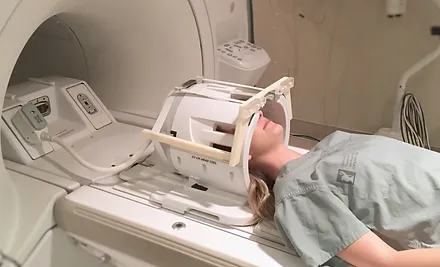
Magnetic Resonance Spectroscopy (MRS)
Magnetic Resonance Spectroscopy (MRS) is a technique that identifies the chemical composition of a specific volume or region of interest (a voxel). Using a conventional Magnetic Resonance Imaging (MRI) machine, MRS non-invasively utilizes radio frequency waves and non-iodizing radiation to identify the chemical spectrum of a voxel of interest. The MRS technique allows us to further gather information and determine relative global concentration of a variety of target metabolites and is a very useful tool for in-vivo type research. MRS techniques are often used to research metabolites and/or neurotransmitters in the brain and spinal cord, however, can also be useful in imaging muscle, liver, and other organs.
Research on Complex regional pain syndrome (CRPS)
Complex regional pain syndrome (CRPS) is a chronic pain condition characterized by a constellation of sensory, motor, and autonomic dysfunction.
The worldwide prevalence of CRPS is cited to be 5.5 to 26.2 per 100,000 people per year and is 3 to 4 times more prevalent in females. CRPS can be a debilitating disorder that drastically impacts quality of life. Despite this, limited treatment options for these individuals currently exist and many patients do not experience pain relief. In addition, research exploring the mechanisms and potential therapies for CRPS is quite limited.
Repetitive transcranial magnetic stimulation (rTMS) may be a beneficial therapy for patients with CRPS. Sham controlled studies and meta-analyses have demonstrated that high frequency rTMS stimulation applied to the primary motor cortex reduces symptoms of neuropathic pain in heterogeneous groups of patients. In CRPS, initial evidence using rTMS have demonstrated it is an effective therapy for short term pain relief.
Our research in CRPS is aimed to determine if rTMS is an effective strategy to improve pain and other symptoms of CRPS.
Further, our work aims to determine the longevity of change and potential improvement caused by rTMS.
A current focus in our lab is to better understand the complexities and neurobiological mechanism of CRPS to inform future therapy.
Our work is focused on involving people with lived experience which is critical in ensuring that the research is accessible and accommodating in its design and its outcomes are relevant to the needs and requirements of the end user.
To this end, we have partnered with Conquer CRPS, a Canadian CRPS support group network. Conquer CRPS also supports our research by donating funds raised during their annual Walk to Conquer CRPS to support participation in our research.
